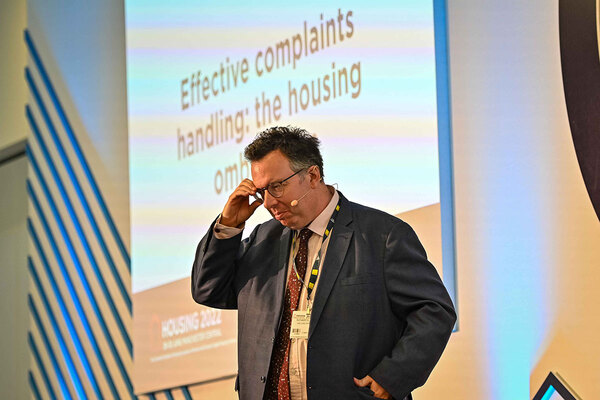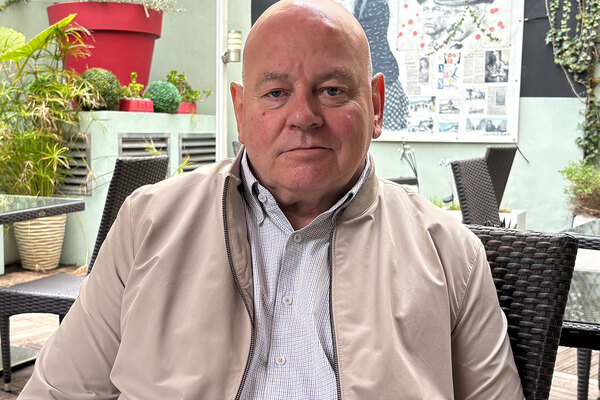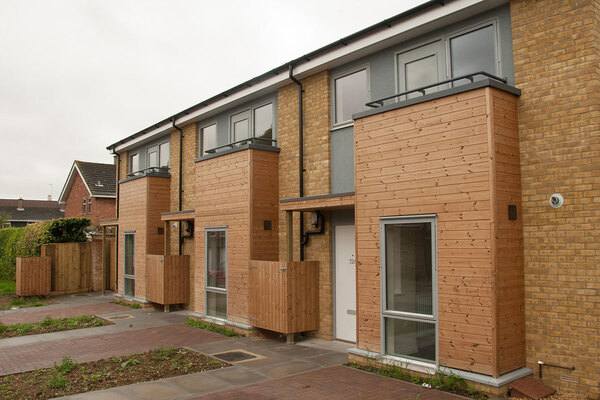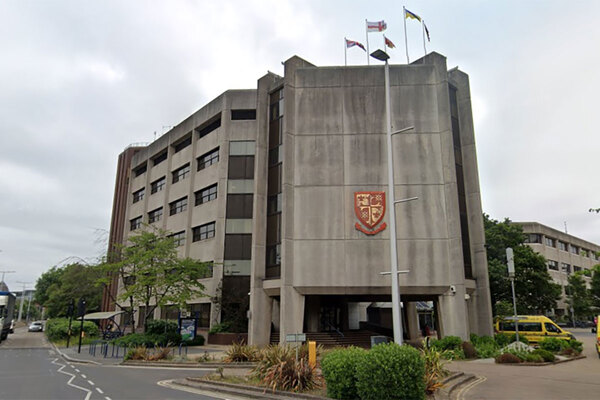Camden Council reduces daily mould reports by 88%
Camden Council was receiving 100 requests for mould inspections from tenants every day at the end of 2022, however this figure dropped to 12 by the end of last year.
According to a new council report, the 88% reduction was in part down to establishing a dedicated damp and mould team in 2022. Since then, this team has worked on more than 6,000 homes.
The Housing Ombudsman launched a special investigation into Camden Council in December over its struggles to deal with damp and mould, repairs and complaint-handling.
At the time the local authority blamed “years of underfunding from government” leading to councils with large housing stocks being “stretched to the limit” and resources being “overwhelmed”.
Damp and mould has become a prominent issue for the sector, particularly following the conclusion of the inquest into the death of Awaab Ishak in November 2022.
The two-year-old died in December 2020 from a respiratory condition caused by prolonged exposure to mould in a Rochdale Boroughwide Housing flat.
His case led to a change to regulation – Awaab’s Law – which will legally oblige landlords to carry out repairs within specific timescales.
Several councils have had spikes in reports; many have created damp and mould action plans, as well as teams and taskforces, to deal with the problem.
The council report, which is going before Camden’s housing scrutiny committee on 23 January, outlined the findings of a case review carried out following a single ombudsman investigation, along with a self-assessment against the watchdog’s Spotlight report on damp and mould.
It stated: “At the end of 2023, over 5,000 properties had a mould inspection and over 2,000 had a subsequent mould wash carried out.
“Based on the information provided, 90 cases were classed as 24-hour emergency requests and 16 households required a decant move due to the seriousness of the mould in the property.”
According to the report, Camden Council currently has 671 active cases on hand.
“Approximately 12 new requests are received per day, which has fallen considerably from the same period this time last year where on certain days approximately 100 new requests were being received,” it stated.
Of the 671 active cases, 17 are considered severe cases requiring a full day of mould washing and have been prioritised.
The other active cases are considered low or medium severity.
The council has been trialling the offer of Saturday appointments, which are “very popular”, according to the report. As a result it will “become a regular feature going forward”.
The council expects to spend £4.7m on addressing damp and mould in 2023-24.
Meric Apak, cabinet member for better homes at Camden Council, said: “We want every one of our tenants to live in a home that is safe, dry and warm, and we are absolutely determined to deliver on this despite the mounting financial challenge that we face.
“After years of underfunding from government, councils with large housing stocks like ours have been stretched to the limit and resources have been overwhelmed.
“Last year we established a dedicated damp and mould team that has worked on over 6,000 homes – making emergency visits and fixing problems.
“However, there is more work to be done. Our commitment to our residents is to continue working with urgency and determination to deliver the high standard of housing that they deserve.”
It emerged recently that the number of damp surveys Islington Council is carrying out increased by 168% in two years.
In May, Hackney Council reported that the number of reports of damp and mould it receives had tripled in a year.
The month before, Southwark Council revealed it had experienced a 200% increase in demand for repairs between November 2022 and April 2023.
Sign up for our Council Focus newsletter
Already have an account? Click here to manage your newsletters












